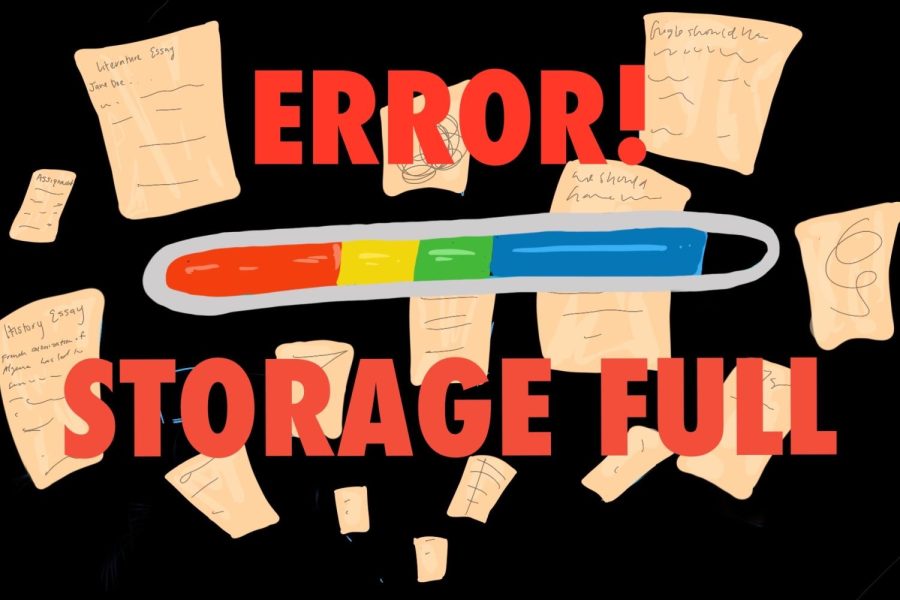Increase storage for UT-affiliated Google accounts
January 19, 2023
In just one short semester at UT, I’ve already utilized nearly 20% of my allotted Google storage. It’s true — essays, group projects and presentations all eventually trickled into my University-affiliated Google account.
Throughout their time on the Forty Acres, students constantly rely on applications like Google Drive and Gmail to organize and complete tasks efficiently. These multi-document storage spaces are integral to students’ educational experiences. Unfortunately, UT forces students to consolidate eight semesters’ worth of invaluable documents and records into just 5 GB.
UT should drastically increase the storage capacities of its University-affiliated Google accounts.
Last year, UT’s Information Technology Services division completed a lengthy process to significantly reduce the University’s Google Workspace usage. These changes required students whose workspace storage exceeded 5 GB to transfer their files elsewhere.
But 5 GB is simply too little space for the average student user.
Historically, UT courses and clubs heavily favor digital content delivery that includes frequent Gmail use and Google Drive-based assignments. With undergraduates expected to take 100-plus credit hours for their degrees and join various organizations, students’ Gmail and Google Drive space will inevitably tighten.
“If (my current) trend continues, seeing how I used 1 GB in my first semester, I (will) probably use somewhere between five and 10 GB (before I graduate),” biochemistry freshman Alex Kretzschmar said.
A lack of expandable Google storage options can create frustrating outcomes for students already swamped by academic and extracurricular commitments.
Veronica Trevino, assistant director of issues management for Financial and Administrative Services, emphasized other University-facilitated storage alternatives.
“All students are automatically assigned a Microsoft Office 365 license,” Trevino said in an email. “It includes Outlook email 2 TB storage capacity … and SharePoint and Teams site folders support up to 25 TB.”
While UT has compensated for Google storage reductions with Microsoft accounts, Google Workspace’s easy-to-use nature makes it a far more attractive option.
“I do use Google Drive more than I use Microsoft … because I’m more familiar with Google Drive and it’s easy to collaborate with people and organize all your stuff in one place,” Kretzschmar said. “Now, I have had to use Microsoft … but I still start with Google Docs every time and (then) transfer it to Word in the end.”
UT should ensure students’ University-affiliated Google Workspace accounts have sufficient storage thresholds. Currently, Google Workspace for Education allocates universities a cumulative baseline storage of 100 TB, with options for additional upgrades. Although increasing UT’s aggregate storage quota could present significant financial implications, the educational benefits for students justify the costs.
The Information Age has placed renewed emphasis on digital file storage in higher education, and UT is no exception. Our campus brims with cutting-edge research and groundbreaking discoveries that often begin as Google Drive documents or hastily-sent Gmail messages. By expanding storage for University-affiliated Google accounts, UT can better accommodate its academically-enriched community.
As Kretzschmar said, “I think (increasing Google storage) would improve the quality of life for all students.”
Gokhale is an undeclared business freshman from Allen, Texas.











